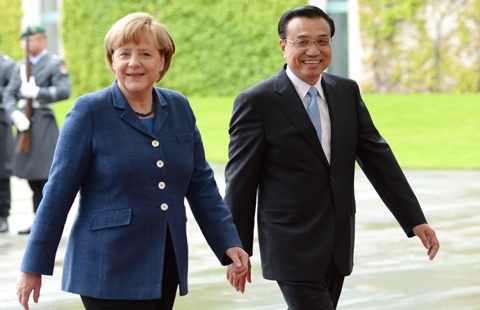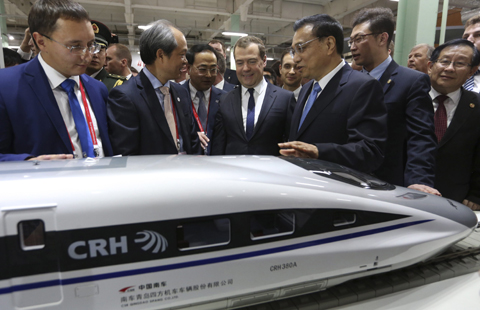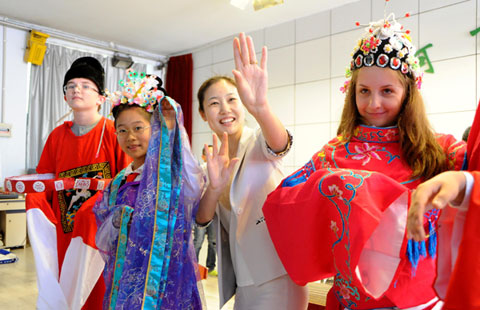
Sino-Russian ties 'set a trend'
Comments Print Mail Large Medium SmallIvanov, 69, a veteran architect of Sino-Russian relations in his work with former Russian president Boris Yeltsin and Vladimir Putin, the current leader, said both countries are doing their best to take into account each other's interests, concerns and aspirations.
"Nobody is trying to act as a 'big brother', but each side is willing to go the extra mile to reach a mutually beneficial solution to even the most complicated problems," said Ivanov, now a professor at the Moscow State Institute for International Relations.
He said China and Russia have just embarked on a "long, long road".
"We still have to work hard to make our relations more efficient, including our combined influence on global affairs. In my view, there is much our two countries can do together to promote the new world order — both in terms of security and development agendas."
He said economic cooperation is significant and growing, but still lacks the depth and diversity both nations really need. "It is not about the overall size of trade or mutual investments, but more about the quality of economic ties," he said.
Ivanov said that energy cooperation is on a solid foundation, but added, "The foundation is not the whole house."
He said that exporting more high-tech products to China is a critical area for bilateral cooperation in the future.
"Our two countries have a lot of potential for developing technology and high-tech-related products," he said, adding that both countries complement each other to a high degree.
He said they should increase cooperation in space, communications, transportation and other areas.
"It will not be easy, but I'm sure the political will to move ahead exists on both sides. We should get down to specific projects, business plans, joint ventures and private-public partnerships to move in this direction."
He said both sides need to radically expand cooperation on universities and research laboratories, as well as promoting joint start-ups, new businesses and techno parks.
"This is much more difficult than building a gas pipeline from Siberia to northern China," Ivanov said. "But this is the future we have to seize together."
Liu Jia in Brussels contributed to this story.
Related Stories
Li's visit to enhance China-Russia practical co-op 2014-10-12 18:09
China-Russia economic cooperation sustainable: VP 2014-10-12 03:12
High-tech co-op further boosts China-Russia ties 2014-10-11 11:23
China-Russia cooperation unaffected by outside factors 2014-10-08 15:08
China-Russia reception marks diplomatic ties anniversary 2014-09-24 16:47
China, Russia to beef up legislative cooperation 2014-09-23 17:26
Leaders of China, Russia and Mongolia meet for three-party summit 2014-09-11 20:28
Background






